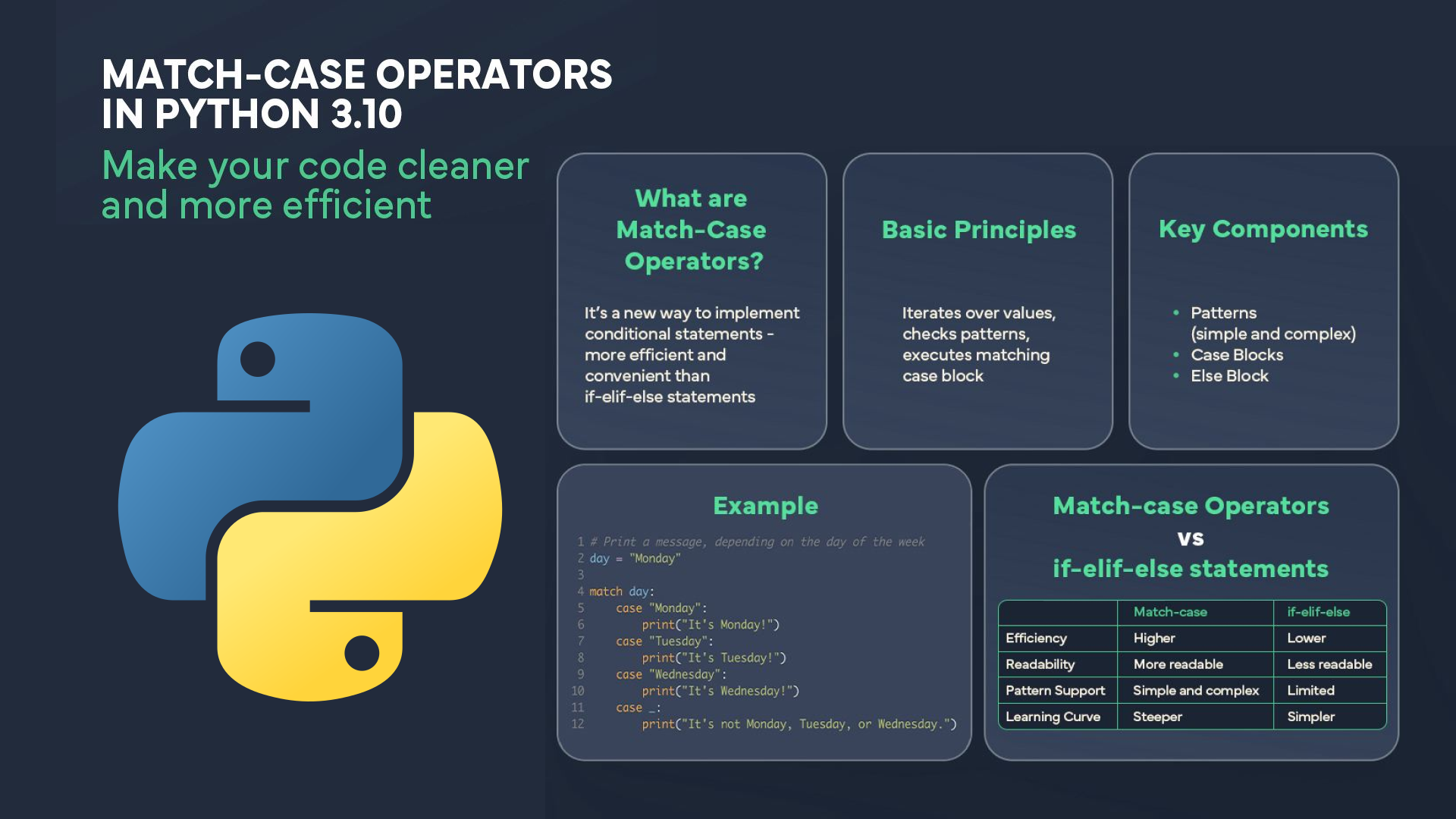Relaterte kurs
Se alle kursAvansert
Introduction to Neural Networks with Python
Neural networks are powerful algorithms inspired by the structure of the human brain that are used to solve complex machine learning problems. You will build your own Neural Network from scratch to understand how it works. After this course, you will be able to create neural networks for solving classification and regression problems using the scikit-learn library.
Nybegynner
Introduction to ChatGPT
Celebrate the world of conversational AI with our 'Intro to ChatGPT' course. Dive into the fundamentals of AI-driven chatbots, understand how ChatGPT works, and explore its exciting possibilities. Join us on a journey into the future of human-AI interaction!
The Most Popular AI Tools for Writing Code
Most commonly used AI tools for coding

Introduction
In the ever-evolving landscape of software development, artificial intelligence has emerged as a powerful ally, revolutionizing traditional approaches and enhancing the capabilities of developers. From automating code generation to refining collaboration in pair programming, AI tools are reshaping the way software is conceived, crafted, and maintained. This article delves into a curated list of AI tools that stand at the forefront of this technological transformation, exploring their diverse applications across various stages of the development lifecycle. Join us on a journey through the cutting-edge tools that are not just streamlining development processes but are also unlocking new possibilities for innovation in the world of software engineering.
Why do we need AI assistance when writing code?
AI assistance in writing code provides several benefits that contribute to enhanced efficiency, improved code quality, and increased productivity for developers. Here are some reasons why AI assistance is valuable in the process of code creation:
-
Code Generation and Automation:
- AI tools can automate the generation of repetitive and boilerplate code, saving developers time and reducing the likelihood of errors.
- Automated code generation allows developers to focus on higher-level aspects of the software architecture and logic.
-
Bug Detection and Quality Improvement:
- AI tools can analyze code to identify potential bugs, vulnerabilities, or areas for improvement.
- Automated code reviews help maintain high code quality and reduce the likelihood of introducing errors into the codebase.
-
Natural Language Programming:
- Natural language programming interfaces enable developers to express their intentions in plain language, allowing AI to translate these intentions into executable code.
- This facilitates collaboration among cross-functional teams and empowers non-developers to contribute to the coding process.
-
Code Refactoring and Optimization:
- AI tools assist in refactoring and optimizing code for better performance, adherence to coding standards, and improved maintainability.
- Automated refactoring can identify and implement improvements that might be overlooked by human developers.
-
Collaboration and Pair Programming:
- AI-powered collaboration tools facilitate pair programming and real-time collaboration, allowing developers to work seamlessly across geographical locations.
- Improved collaboration enhances communication and knowledge sharing within development teams.
-
Documentation Generation:
- AI tools can assist in automatically generating documentation from code, ensuring that documentation stays up-to-date with the codebase.
- This helps in creating comprehensive and easily maintainable documentation.
In summary, AI assistance in coding streamlines various aspects of the development process, allowing developers to be more productive, collaborative, and focused on higher-level problem-solving. It complements human expertise, making software development more accessible and efficient.
Run Code from Your Browser - No Installation Required

ChatGPT as an AI Tool for Coding
ChatGPT is a versatile natural language processing model developed by OpenAI. While it is not specifically designed for coding, developers and users have found applications for ChatGPT in assisting with coding-related tasks.
Use Cases:
-
Code Generation:
- Developers can use ChatGPT to generate code snippets based on natural language prompts. By describing the desired functionality or logic, users can leverage ChatGPT to provide code suggestions.
-
Code Understanding:
- ChatGPT can assist in understanding and interpreting code. Users can provide code snippets or describe code-related queries, and ChatGPT can offer explanations, identify potential issues, or provide insights.
-
Problem Solving and Algorithmic Concepts:
- ChatGPT can help users brainstorm and refine algorithmic solutions. Developers can discuss problem statements or algorithmic concepts with ChatGPT to receive suggestions and insights.
-
Learning and Documentation:
- Developers, especially those new to programming, can use ChatGPT as a learning resource. By asking questions about programming concepts or seeking clarifications, users can receive explanations in natural language.
-
Debugging Assistance:
- While not a substitute for traditional debugging tools, developers can use ChatGPT to discuss code issues and potentially identify logical errors or suggest debugging strategies.
You can find ChatGPT by the following link.
Snyk: Enhancing Security in Software Development
Snyk is a comprehensive platform designed to bolster the security of software projects by identifying and addressing vulnerabilities in open-source dependencies. Leveraging advanced technologies, including machine learning, Snyk provides developers with a range of features to fortify their code against potential security risks.
Key Features:
-
Dependency Scanning:
- Snyk conducts thorough scans of project dependencies to pinpoint known vulnerabilities. It relies on a comprehensive database to provide insights into potential risks.
-
Container Security:
- Supporting container security, Snyk helps users identify vulnerabilities in Docker images and Kubernetes configurations. This ensures that containers are free from known security issues.
-
Continuous Monitoring:
- Snyk offers continuous monitoring for projects, alerting developers to new vulnerabilities as they are discovered. This proactive approach aids in maintaining software security over time.
-
Integrations with Development Tools:
- Seamless integrations with various development tools and CI/CD pipelines make it convenient for developers to incorporate security checks into their workflow.
-
Fix Recommendations:
- In addition to identifying vulnerabilities, Snyk provides actionable recommendations on how to address these issues. This guidance facilitates efficient resolution of security concerns.
-
Language Support:
- Snyk supports multiple programming languages, including Java, JavaScript, Python, Ruby, and others, offering versatility for a wide range of development projects.
Snyk plays a critical role in enhancing the security posture of software applications by focusing on the identification and mitigation of security vulnerabilities in third-party dependencies. Its features empower developers to build more secure and resilient software. You can find more information on the official website using the following link.
GitHub Copilot: Revolutionizing Coding with AI
GitHub Copilot is an innovative AI-powered coding tool developed by GitHub in collaboration with OpenAI. This tool is designed to assist developers by generating code suggestions in real-time as they write. GitHub Copilot is built upon OpenAI's Codex, a variant of the GPT (Generative Pre-trained Transformer) architecture fine-tuned specifically for code generation.
Key Features:
-
Code Autocompletion:
- GitHub Copilot predicts and completes entire lines or blocks of code as developers type, speeding up the coding process and reducing the need to write boilerplate code manually.
-
Natural Language Integration:
- Developers can express their coding intentions in natural language comments, and GitHub Copilot translates these comments into functional code snippets. This natural language interface makes it more accessible for developers to communicate with the tool.
-
Language Support:
- GitHub Copilot supports multiple programming languages, allowing developers to use it across a diverse range of projects.
-
Versatility Across IDEs:
- The tool integrates seamlessly with popular Integrated Development Environments (IDEs) such as Visual Studio Code, making it accessible to a broad community of developers.
-
Pair Programming Assistance:
- GitHub Copilot aids in pair programming by generating collaborative code suggestions, fostering teamwork and knowledge sharing among developers.
-
Context-Aware Suggestions:
- The tool takes into account the context of the code being written, offering more contextually relevant suggestions. This enhances the accuracy and usefulness of the generated code.
GitHub Copilot marks a significant advancement in AI-driven coding assistance, reshaping how developers approach and interact with their code. As with any tool, its effective use involves a balance between leveraging its capabilities and maintaining human oversight. You can find GitHub Copilot by the link.
Note
Pay attention that GitHub Copilot is not free unlike ChatGPT and Snyk!
Start Learning Coding today and boost your Career Potential

FAQs
Q: How do AI code completion tools work?
A: AI code completion tools use machine learning algorithms to analyze code patterns, context, and user input. They predict and suggest relevant code snippets in real-time as developers type, improving coding speed and reducing the likelihood of syntax errors.
Q: What is the role of AI in code refactoring?
A: AI in code refactoring helps identify areas of code that can be improved for better performance, readability, or adherence to coding standards. These tools analyze existing codebases and provide suggestions for optimizations.
Q: Are these AI tools suitable for all programming languages?
A: Many AI tools are designed to support multiple programming languages, making them versatile for a wide range of development projects. However, the level of support may vary, and developers should check the compatibility of specific tools with their chosen programming languages.
Q: Should developers rely solely on AI-generated code?
A: While AI tools can significantly enhance productivity, it's important for developers to review and verify the generated code. Human oversight ensures that the code aligns with project requirements, coding standards, and specific business logic.
Q: How can I stay updated on the latest AI tools for coding?
A: To stay updated on the latest AI tools for coding, regularly check official websites, developer forums, and community discussions. Many tools are actively developed, and new features or tools may be introduced over time.
Q: Are there any ethical considerations with using AI in coding?
A: Yes, ethical considerations include transparency in AI-generated code, addressing biases in training data, and ensuring that AI tools are used responsibly. Developers should be mindful of ethical guidelines and use AI tools in a manner that aligns with ethical coding practices.
Relaterte kurs
Se alle kursAvansert
Introduction to Neural Networks with Python
Neural networks are powerful algorithms inspired by the structure of the human brain that are used to solve complex machine learning problems. You will build your own Neural Network from scratch to understand how it works. After this course, you will be able to create neural networks for solving classification and regression problems using the scikit-learn library.
Nybegynner
Introduction to ChatGPT
Celebrate the world of conversational AI with our 'Intro to ChatGPT' course. Dive into the fundamentals of AI-driven chatbots, understand how ChatGPT works, and explore its exciting possibilities. Join us on a journey into the future of human-AI interaction!
The SOLID Principles in Software Development
The SOLID Principles Overview
by Anastasiia Tsurkan
Backend Developer
Nov, 2023・8 min read

30 Python Project Ideas for Beginners
Python Project Ideas
by Anastasiia Tsurkan
Backend Developer
Sep, 2024・14 min read

Match-case Operators in Python
Match-case Operators vs if-elif-else statements
by Oleh Lohvyn
Backend Developer
Dec, 2023・6 min read

Innholdet i denne artikkelen